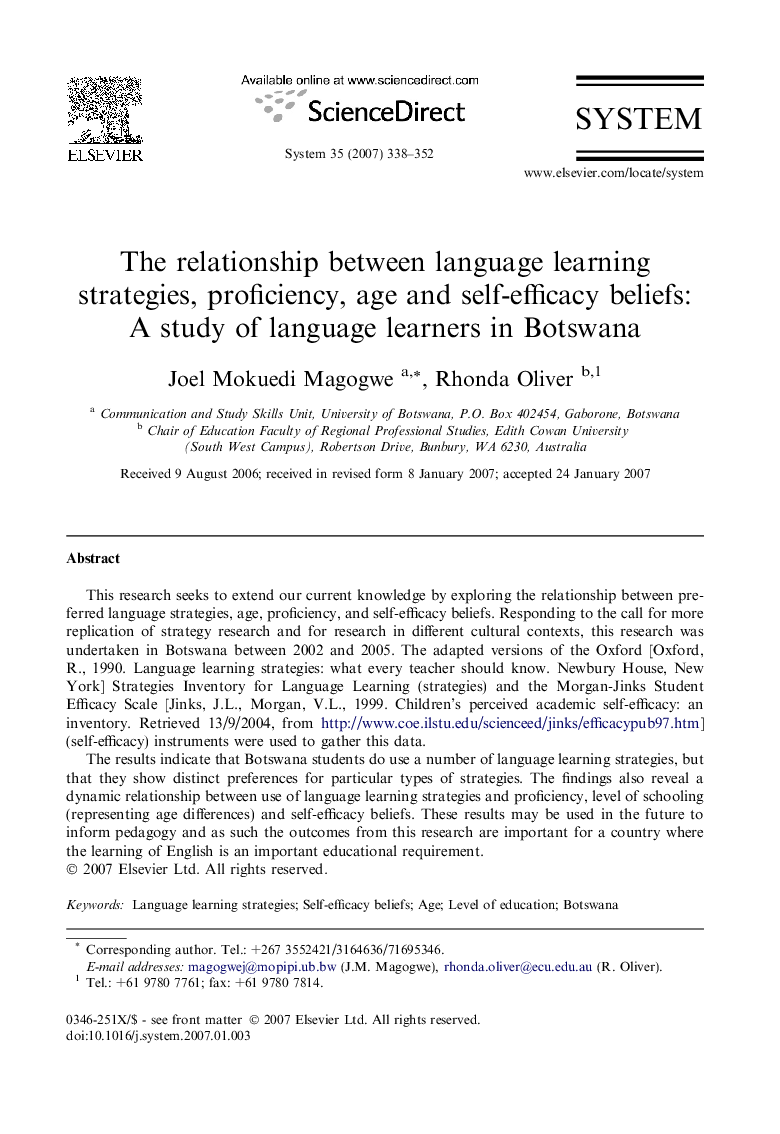| کد مقاله | کد نشریه | سال انتشار | مقاله انگلیسی | نسخه تمام متن |
|---|---|---|---|---|
| 373760 | 622330 | 2007 | 15 صفحه PDF | دانلود رایگان |

This research seeks to extend our current knowledge by exploring the relationship between preferred language strategies, age, proficiency, and self-efficacy beliefs. Responding to the call for more replication of strategy research and for research in different cultural contexts, this research was undertaken in Botswana between 2002 and 2005. The adapted versions of the Oxford [Oxford, R., 1990. Language learning strategies: what every teacher should know. Newbury House, New York] Strategies Inventory for Language Learning (strategies) and the Morgan-Jinks Student Efficacy Scale [Jinks, J.L., Morgan, V.L., 1999. Children’s perceived academic self-efficacy: an inventory. Retrieved 13/9/2004, from http://www.coe.ilstu.edu/scienceed/jinks/efficacypub97.htm] (self-efficacy) instruments were used to gather this data.The results indicate that Botswana students do use a number of language learning strategies, but that they show distinct preferences for particular types of strategies. The findings also reveal a dynamic relationship between use of language learning strategies and proficiency, level of schooling (representing age differences) and self-efficacy beliefs. These results may be used in the future to inform pedagogy and as such the outcomes from this research are important for a country where the learning of English is an important educational requirement.
Journal: System - Volume 35, Issue 3, September 2007, Pages 338–352